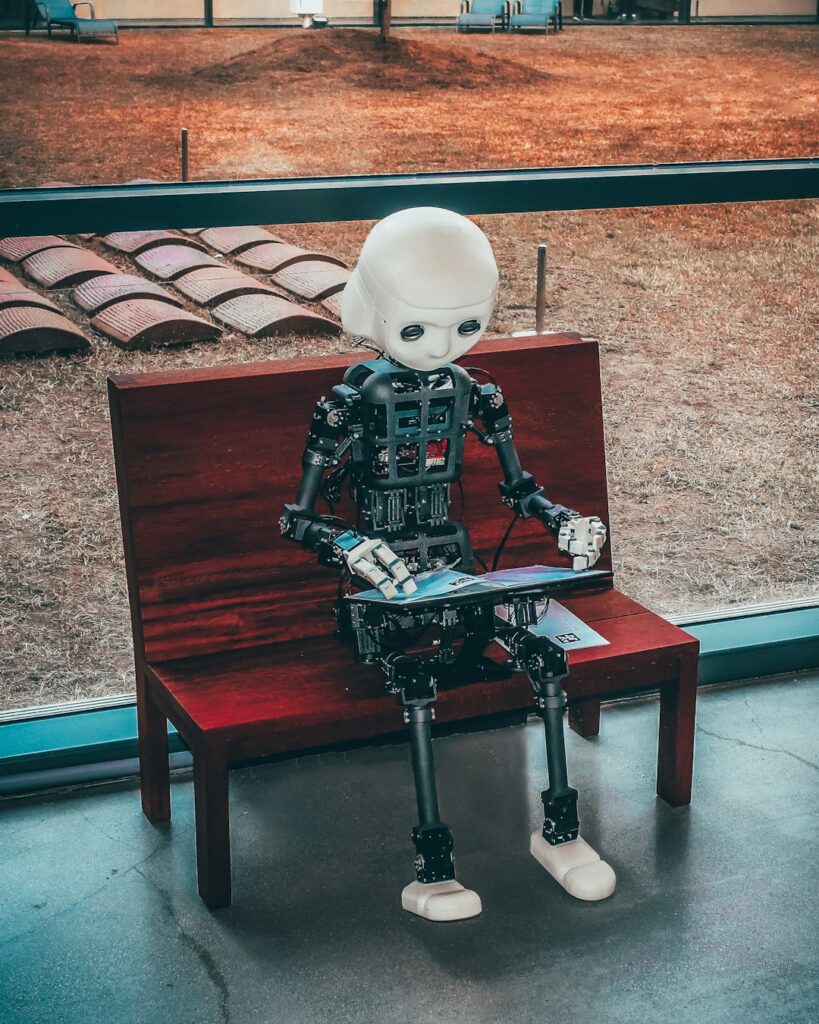The AI that’s becoming a master at intricate puzzles
Have you ever been stumped by a difficult puzzle, only to watch in amazement as an AI effortlessly solves it? Artificial intelligence has been making huge strides in recent years, and one of the most intriguing developments is its ability to master intricate puzzles. From Rubik’s cubes to complex logic puzzles, AI has been proving itself as a formidable problem solver. In this blog post, we’ll explore the fascinating world of AI and puzzle-solving, dive into surprising statistics about AI’s puzzle-solving abilities, and discuss how you can apply AI-inspired problem-solving strategies to your own life.
The Rise of AI in Puzzle-Solving
AI’s rise in puzzle-solving is nothing short of remarkable. In 2018, a robot named “Sub1 Reloaded” solved a Rubik’s cube in 0.637 seconds, setting a new world record. This feat demonstrated the incredible speed and precision that AI can bring to tackling complex puzzles. Additionally, AI has made significant advancements in solving intricate logic puzzles, often outperforming human experts in the process.
Surprising Statistics on AI’s Puzzle-Solving Abilities
– Over 100,000: The number of moves ahead an AI system called “DeepCube” can analyze to solve a Rubik’s cube, far beyond the capabilities of most human players.
– 1 billion: The number of positions an AI program named “AlphaGo” can evaluate per second when playing the game of Go, enabling it to make highly strategic moves.
These statistics showcase the sheer processing power and analytical prowess that AI brings to the table when it comes to solving puzzles. It’s clear that AI is not just matching human capabilities; it’s surpassing them in many respects.
How AI’s Puzzle-Solving Can Inspire You
Embracing Parallel Thinking
One way to apply AI-inspired puzzle-solving strategies in your daily life is by adopting the concept of parallel thinking. AI systems excel at evaluating multiple possibilities simultaneously, enabling them to find optimal solutions quickly. Likewise, by training your mind to consider multiple perspectives in problem-solving, you can enhance your decision-making and creativity.
Leveraging Data-Driven Insights
AI relies on vast amounts of data to make informed decisions. Similarly, you can leverage data-driven insights in your personal and professional life to tackle complex problems. Whether it’s using productivity analytics to optimize your workflow or analyzing market trends to make strategic decisions, adopting an analytical approach can yield remarkable results.
Continuous Learning and Adaptation
AI continuously learns and adapts to new information, refining its strategies over time. As individuals, embracing a similar mindset of continuous learning and adaptation can fuel personal growth and skill development. Whether it’s picking up a new hobby or acquiring knowledge in a different field, a willingness to learn and adapt is key to overcoming life’s puzzles.
Applying AI-Inspired Problem-Solving in Your Daily Life
Now that we’ve explored the impact of AI in puzzle-solving and discussed how its strategies can inspire us, let’s take a look at how you can apply these insights in your daily life.
Practice Divergent Thinking
Divergent thinking involves generating multiple solutions to a problem by exploring different possibilities. Embrace this approach by setting aside time to brainstorm various solutions to challenges you encounter. By widening your range of possible solutions, you may discover innovative ways to overcome obstacles.
Embrace Data-Driven Decision Making
Incorporate data-driven decision-making into your routine by gathering relevant information before tackling a problem. Whether it’s evaluating pros and cons or conducting research, arming yourself with data can lead to more informed and effective decisions.
Cultivate a Growth Mindset
Embrace a growth mindset by seeking out opportunities for learning and development. Consider taking online courses, attending workshops, or engaging in self-study to expand your knowledge and skills. By approaching challenges with a growth mindset, you’ll be better equipped to navigate complexities and achieve your goals.
In Conclusion
AI’s prowess in solving intricate puzzles serves as a testament to the power of advanced algorithms and machine learning. By drawing inspiration from AI’s problem-solving capabilities, we can enhance our own cognitive abilities and approach challenges with a fresh perspective. Whether it’s adopting parallel thinking, leveraging data-driven insights, or embracing continuous learning, the influence of AI in puzzle-solving extends far beyond the realm of technology. So, the next time you find yourself grappling with a complex problem, take a page from the AI playbook and approach it with a strategic, data-informed, and adaptive mindset. Who knows? You might just surprise yourself with the solutions you uncover.












